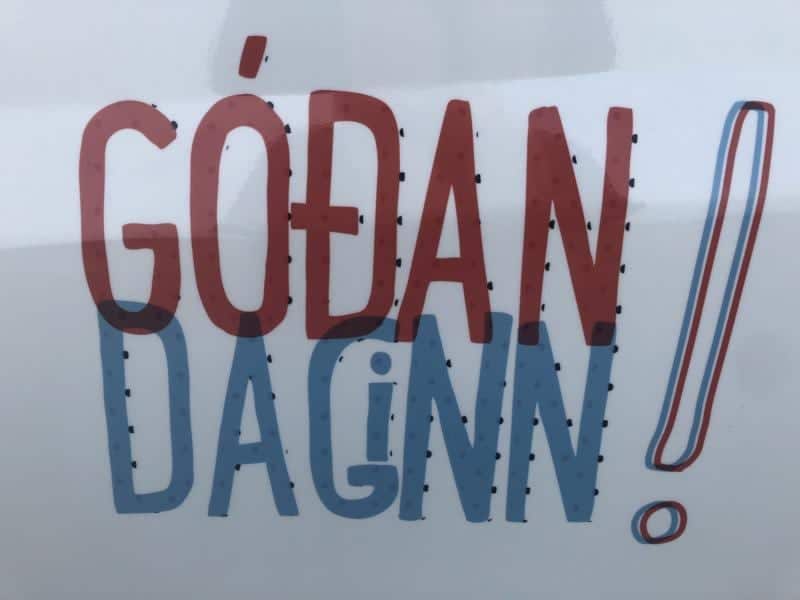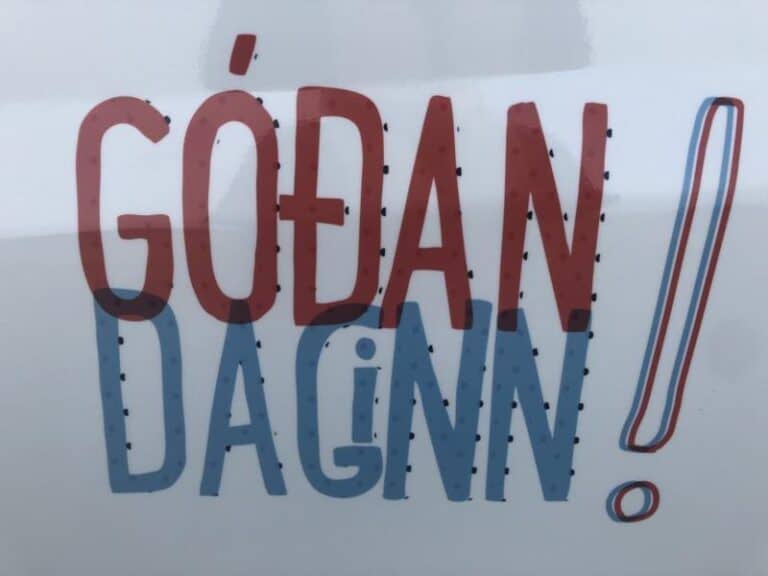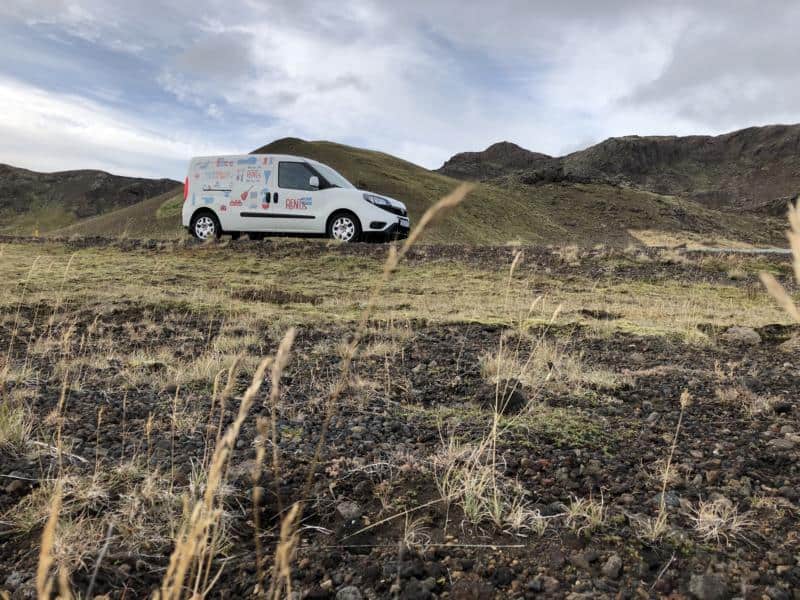If you’re planning to visit Iceland, it’s helpful to first know what language is spoken there. Many travelers are curious: what language does Iceland speak today, given its ancient roots?
Most Icelanders speak multiple languages in addition to their the country’s official language, and the national literacy rate in this country impressively reaches 100 percent. About 97 percent of Icelanders speak Icelandic, as their mother tongue.
In this article, we’ll take a closer look at the language spoken in Iceland, exploring its structure, history, and unique characteristics.
What Language is Spoken in Iceland?
Icelandic is the language of Iceland, a North Germanic language similar to Old Norse. Iceland native language has remained remarkably unchanged since the country was first settled, making its words and pronunciation challenging for visitors.
Unlike many modern languages, Icelandic has evolved with little external influence. Thanks to its geographic isolation and strong commitment to linguistic purity, much of its original character from the 9th century has been preserved.
Iceland has refused to change its language, which is why Icelandic school children today can easily understand any text from the 12th century. This commitment to linguistic purity is deeply important in Iceland, where adopting foreign words for modern terms is rare. Instead, Icelanders invent new words, combine existing ones, or assign old words new meanings.
Preserving their mother tongue while limiting foreign languages spoken natively is a proud tradition that continues across generations.
Read more: Icelandic runes
The History Of Iceland’s Language
Many travelers researching “what language do they speak in Iceland?” are fascinated to learn about its Viking roots. If you’re curious what is the language of Iceland and why there are so few other languages spoken natively, the answer lies in centuries of cultural and linguistic preservation.
The official language of Iceland, Icelandic, is insular meaning foreign influences haven’t changed its structure. The native language in Iceland has hardly changed at all since the 9th and 10th centuries when the land’s first settlers arrived.
What is the language of Iceland’s biggest historical influence? During the 18th century, Danish rule brought a wave of Danish into the country. However, Icelanders held firm. Even under Danish governance, they continued using Icelandic for literature and public life, preserving the native language of Iceland and maintaining their cultural identity.
Because of their enduring commitment, when someone today asks, “Iceland speaks what language?” — the answer tells a story of pride, perseverance, and an unbroken link to the country’s past.

Iceland Languages Spoken Besides Icelandic: A Closer Look
Many visitors wonder what other languages are spoken in Iceland, aside from their native Icelandic language, and if there is more than one version of Icelandic. While there are some minor regional differences, there aren’t distinct dialects. Iceland is a small country and nearly all Icelanders speak their mother language in the same form.
However, all those who wonder if people in Iceland speak English will be happy to know that a majority of Icelanders are multilingual. Most residents can speak fluent English, but other languages as well, such as German, Danish, French and Spanish. In Icelandic schools, all students must learn English and another Scandinavian language in addition to their mother tongue.
In addition to being Iceland’s primary language, Icelandic is accompanied by other languages spoken in the country, including Polish, Lithuanian, Thai, Filipino, and Portuguese.
The Icelandic Alphabet and Pronunciation
While you don’t necessarily need to learn Icelandic if you’re planning on visiting this scenic country, becoming familiar with the Icelandic alphabet and pronunciation can give you a helpful head start. With a total of 32 letters — including unique characters like Ð (Eth), Þ (Thorn), and Æ (Ae) — the Icelandic alphabet offers a fascinating glimpse into the country’s rich linguistic history.
Here are some noteworthy Icelandic letters and their pronunciation to help you get started:
Á á [au̯] pronounced ‘ow’ as in cow
Ð ð [ɛð̠] pronounced ‘th’ as in ‘the’
É é [jɛ] pronounced as yeah
F f [ɛfː] pronounced as a regular ‘f’ as in Finland
I i [ɪ] pronounced as the letter ‘i’ in win
Í í [i] pronounced as ‘ee’ as in ‘we’
J j [jɔð̠] pronounced as a ‘y’ like in ‘year’
O o [ɔ] pronounced as an ‘o’ like ‘four’
Ó ó [ou̯] pronounced as ‘oh’
R r [ɛr] always rolled
Ú ú [u] pronounced ‘ou’ as in you
X x [ɛxs] pronounced as a hard ‘khs’ as in Bach
Y y [ʏfsɪlɔn ɪ] see i
Ý ý [ʏfsɪlɔn i] see í
Þ þ [θ̠ɔrn̥] pronounced ‘th’ as in thing
Æ æ [ai̯] pronounced ‘eye’
Ö ö [œ] pronounced ‘e’ as in end
20 Basic Icelandic Phrases for Travelers
Ready to learn how to speak Icelandic? Start out with these basic Icelandic phrases! Whether you’re wandering the streets of Reykjavik or trekking through the rugged landscapes of Iceland’s countryside, these 20 basic Icelandic words and phrases will help you navigate daily interactions and immerse yourself in the local culture.
- Hello – Halló – Pronounced: HAHT-loh
- Good morning – Góðan dag – Pronounced: GOH-than dahg
- Good evening – Gott kvöld – Pronounced: GOHT kvehld
- Goodbye – Bless – Pronounced: bles
- Please – Vinsamlegast – Pronounced: VEEN-sahm-leh-gahst
- Thank you – Takk – Pronounced: tahk
- Yes – Já – Pronounced: yow (like ‘yell’ without the ‘ell’)
- No – Nei – Pronounced: nay
- Excuse me – Afsakið – Pronounced: AHF-sah-keeth
- I’m sorry – Fyrirgefðu – Pronounced: FEER-ir-geh-fthu
- Where is…? – Hvar er…? – Pronounced: kvar ehr
- How much is this? – Hvað kostar þetta? – Pronounced: kvath kostar thet-tah
- Do you speak English? – Talar þú ensku? – Pronounced: TAH-lahr thoo EHN-skoo
- I don’t understand – Ég skil ekki – Pronounced: yehg skil EH-kee
- Can you help me? – Getur þú hjálpað mér? – Pronounced: geh-tuhr thoo HYOWL-path mayr
- What time is it? – Hvað er klukkan? – Pronounced: kvath ehr KLH-kuh-n
- I would like… – Ég ætla að… – Pronounced: yehg AYT-lah ath
- Where is the bathroom? – Hvar er klósettið? – Pronounced: kvar ehr KLOW-seht-eeth
- Cheers! – Skál! – Pronounced: skowl
- Can I have the bill, please? – Get ég fengið reikninginn, vinsamlegast? – Pronounced: geh-t yeg fow REY-knih-ihn, VEEN-sahm-leh-gahst?
Bonus: Reykjavik. Pronounced: RAY-kyah-vik.
Is Icelandic a Language That’s Hard to Learn?
If you’re traveling to Iceland in the near future, you may also be wondering: can Icelandic be learned quickly? Unfortunately, there’s no easy answer to that. The speed at which you learn a new language depends on several factors, such as the amount of time you dedicate to learning, the language’s difficulty, and more. However, the general consensus is that Icelandic is a relatively challenging language to learn, classified by the Foreign Service Institute (FSI) as a category IV language, meaning it requires at least 1100 hours or 44 weeks of study to achieve fluency.
Read more: How to move to Iceland
What Language is Iceland’s Most Similar to?
While Iceland has managed to preserve its unique cultural and linguistic heritage by remaining mostly isolated from external influences,the country has a strong tradition of linguistic purism — actively maintaining the purity of the Icelandic language. Icelandic grammar and vocabulary share deep roots with Faroese and Norwegian, tracing back to Old Norse. Although these languages are geographically separated, they still display notable similarities, particularly in their complex grammar structures.
Fun Facts About Icelandic Language
Icelandic Became The Official National Language In 2011
Although Icelanders have used their native language throughout the entire history of the country, Icelandic didn’t become the official language of Iceland until 2011. The same year, Icelandic Sign Language became the official language of Iceland’s deaf community.
Speaking Icelandic Is Like Traveling Through Time
The Icelandic language has changed astonishingly little over time, and Icelanders have made great efforts to keep the same dialect spoken for centuries. It remains the closest relative to ancient Faroese. Speaking Icelandic is the closest to time travel you can get as a tourist anywhere in the world.
A Computer Is Called A Witch Of Numbers In Iceland
Icelandic linguists aim to maintain the original structure of their mother language when developing a modern vocabulary. As times change and centuries go by, topics of conversation change drastically and the need for new words and terms emerge.
Icelanders have been facing two options when it comes to new, modern terms – to adopt foreign words, or to create their own. They’ve decided to get creative and develop new terms.
The word “computer” didn’t exist in the Iceland language in the Middle Ages, so linguists created a new term – tölva.
The new word consists of two words: tala (number) and völva (a witch or a fortune-teller)- which makes the literal translation of the word computer in Icelandic as the witch of numbers!
Now that you’ve learned about the language of Iceland, getting ready for a unique time-traveling adventure is all that’s left for you to do.
Contact us for more information about getting around this beautiful island, and browse our collection of Iceland camper rentals today! We also recommend exploring our comprehensive Iceland travel guide.


